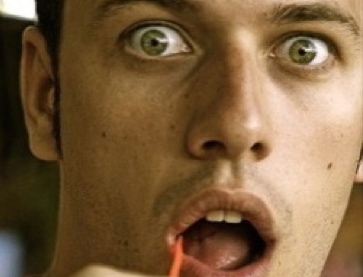Unexpected events, possible dangers, mismatches: the feeling of surprise is triggered by many different factors. How do its mechanisms work and why is surprise so important? At ISTC the Goal-Oriented Agents Laboratory (GOAL) is working to build a cognitive model of surprise.
We all know how being surprised feels like, but why do we feel surprise? At ISTC the Goal-Oriented Agents Laboratory (GOAL) studies the cognitive structure of surprise to answer this question.
First of all, there are two main different kinds of surprise, each one associated with a particular phase of the cognitive processing. There is a “first-hand” surprise, due to the perceptual mismatch between what the agent sees and its previous expectations. This kind of surprise is ruled by the law “the more I was sure, the more I am surprised”. For example, if I believe my best friend is living in Berlin, and suddenly he/she knocks on my door, I am surprised because I didn’t expect him/her to come. From a cognitive point of view, this is a discrepancy between an incoming input (my friend arrival) and a previous knowledge (my friend staying in Berlin).
The second kind of surprise is deeper and more complex. It has something to do with astonishment: it is generated when an event is in contrast with the previous long-term knowledge and expectation. If, for example, a policeman knocks on my door and enters my house to arrest me when I have done nothing, I am surprised not just because I did not expect this event. The cognitive reason of my surprise is that the event destroys some strong and radicated beliefs I had (let’s say, that honest people do not get arrested, that law is fair, and so on.)
Despite the differences, both kinds of surprise – the mismatch-based and the astonishment – are based on beliefs, which are denied by something new. So we feel surprise because of what we can call a “cognitive failure”.
Contact: Cristiano Castelfranchi
ISTC Group: Goal-Oriented Agents Laboratory


